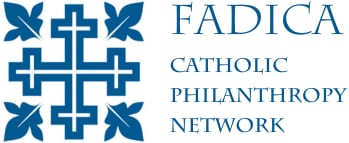Washington, DC – – Catholic dioceses and parishes around the country continue to report mounting problems in keeping their schools afloat amidst a lackluster economy, rising costs, increasing competition for students by new charter schools, and financing arrangements that are not working.
Judging from a spate of news reports from older metropolitan areas of the country, where Catholic populations are concentrated, the problems of sustaining parochial schools is reaching the breaking point.
This past Spring, the Archdiocese of Baltimore, where Catholic schools began in the United States, 10,000 school seats sat empty, while more than $10 million in tuition aid and operational support was paid out by the church there.
The Archdiocese has taken bold steps to consolidate 13 schools while adopting a more hands-on approach to design a more vibrant school system for the future.
Meanwhile, archdioceses across the country report similar pressures keeping their schools solvent.
The Archdiocese of Boston, for example, continues to reconfigure and consolidate Catholic schools there. Facing continued school closings, the archdiocese is spending time and money on new curriculum, renovated buildings, better teacher salaries, and a new model of regional schools that will mean significantly fewer schools in the future.
In the Northeastern Pennsylvania diocese of Scranton, a Catholic stronghold for decades, parishioners, parents and students have seen 30 of their schools close since 1999 due to declining enrollment and financial stress.
Since the bulk of the closures in 2007, enrollment has fallen 7 percent in the 22 diocesan schools contributing to a $5.6 million operating deficit last year.
According to the NCEA, between 2000 and 2010, the number of students enrolled in Catholic schools nationwide declined by 533,697, or 20 percent.
In the Archdiocese of Philadelphia, charter schools are beginning to hurt registration rates within parochial schools. In a recent conference of Catholic business leaders and donors in that city held in late June, Bishop Timothy Senior of Philadelphia called for a national conversation to talk about the changing environment for Catholic schools today and a more systematic way of dealing with it.
A Pew Foundation year long study of schools and parents in Philadelphia describes a “slow motion stampede” of urban families toward charter schools because they do not charge tuition and emphasize many of the same aspects of Catholic schools including safety, discipline and the teaching of values.
Charter schools supplanted Catholic schools last year as the city’s largest alternative to Philadelphia district schools.
In New York City nearly one hundred inner city Catholic schools serve a population of students two thirds of whom live below the poverty line. As in other large metropolitan centers Catholic school enrollment continues to drop.
Last May, at the Manhattan Institute, Archbishop Timothy Dolan called for a new spirit of boldness and fresh thinking about parochial schools and urged deliberate steps focused on recruiting school principals, changing school governance, and adopting stronger collaborative practices with Catholic school stakeholders such as major donors.
Meanwhile the Catholic foundation community continues to assign the highest priority to the future of Catholic schools. In a survey conducted in June, members of Foundations and Donors Interested in Catholic Activities, Catholic schools outranked all other subjects of cooperative action within Catholic philanthropy at the present time.
“There is no question in my mind,” said FADICA’s president, Francis J. Butler, “that figuring out what the Catholic school of the future will look like and how it will operate, is the most critical question before Catholic philanthropy right now” he said.
Within the Catholic philanthropic world this past June some forty million dollars was received by Boston College to further its research and assistance to Catholic schools.
A $20 million gift from Peter and Carolyn Lynch will establish a new training program for school principals. The grant followed a $20 million dollar grant in May from Barbara and Patrick Roche to BC’s Center for Catholic Education.


